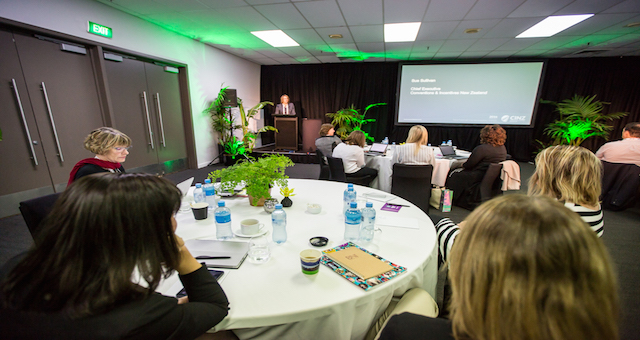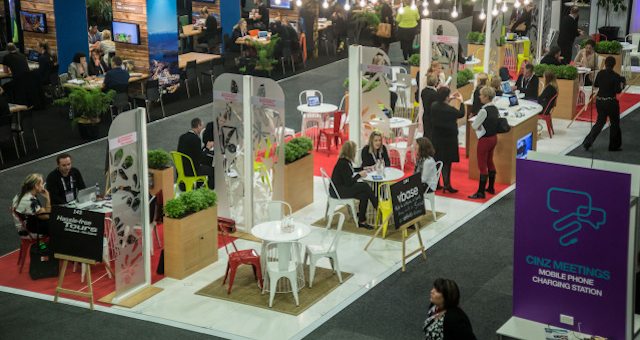
The Chief Executive of Conventions and Incentives New Zealand (CINZ), Sue Sullivan, is calling for an end to GST disadvantage New Zealand-based international conferences face compared to other global destinations.
Speaking to a group of industry stakeholders this morning in Auckland (31 May 2018), leaders and media at the annual business events showcase MEETINGS 2018 in Auckland, CINZ Chief Executive Sue Sullivan said discussions with Inland Revenue are ongoing.
This is putting New Zealand conferences at a GST disadvantage compared to Australia, in particular, Sullivan said.
“This will have wider economic consequences for ‘NZ Inc’ too, if New Zealand cannot provide a workable and straightforward scheme for GST refunds to overseas businesses attending conferences in New Zealand,” she said.
“New Zealand needs to be competitive on the world stage. Australia now has an edge on us in a number of ways including zero-rated GST for International Delegates since October 2016, State Bureaux funding in various forms for conference bid support, and the recent Federal Government announcement of a $12 million Bid Fund Program over three years, one of most important recently announced developments.
Currently GST must be charged at 15 per cent on registration fees for conferences held in New Zealand, regardless of whether the conference attendees are residents or non-residents.
“Australia’s Bid Fund Program will offer financial support at the crucial bidding stage for international corporate incentive trips, exhibitions, association conferences and congresses. We need to be looking at ways New Zealand can keep up and compete.
“New Zealand’s business events sector provides key support for infrastructure development, business relationships, knowledge transfer and industry investment, with the benefits spreading across both city and regional economies.
Tourism New Zealand currently supports the New Zealand industry with the Conference Assistance Programme (CAP) which, in conjunction with New Zealand Convention Bureaux, has been successful in winning conferences valued at $39.7 million in the last financial year.
“Conference, incentive and business events delegates travel off-peak, stay longer, and spend more than leisure tourists. The impact of business events is far-reaching, with the visitors who travel to them often extending their stay to tour New Zealand, and more likely to return for a holiday in the future. Hotels, restaurants, transport services and entertainment throughout the regions all benefit when there’s a big convention in town,” she said.
Allan Bullot, Tax Partner with Deloitte has been liaising with Inland Revenue on behalf of CINZ to look at a proposed solution to the GST disadvantage New Zealand faces.
“In 2014 changes were made to the New Zealand GST legislation that allowed non-resident businesses without New Zealand operations to claim back GST on costs incurred within New Zealand, bringing us in line with various international guidelines for the treatment of business related costs.
“While opportunities exist for non-resident businesses sending staff to New Zealand to attend conferences to technically claim GST refunds, in practice it is difficult, if not impossible, to economically recover the GST on New Zealand conference costs. The 2014 GST legislative changes have in practice not been effective for the New Zealand conference industry and the GST problem has remained,” he said.
“Amending the New Zealand GST legislation to allow zero-rating of certain services made in relation to conferences would be a solution similar to the Australian approach.






